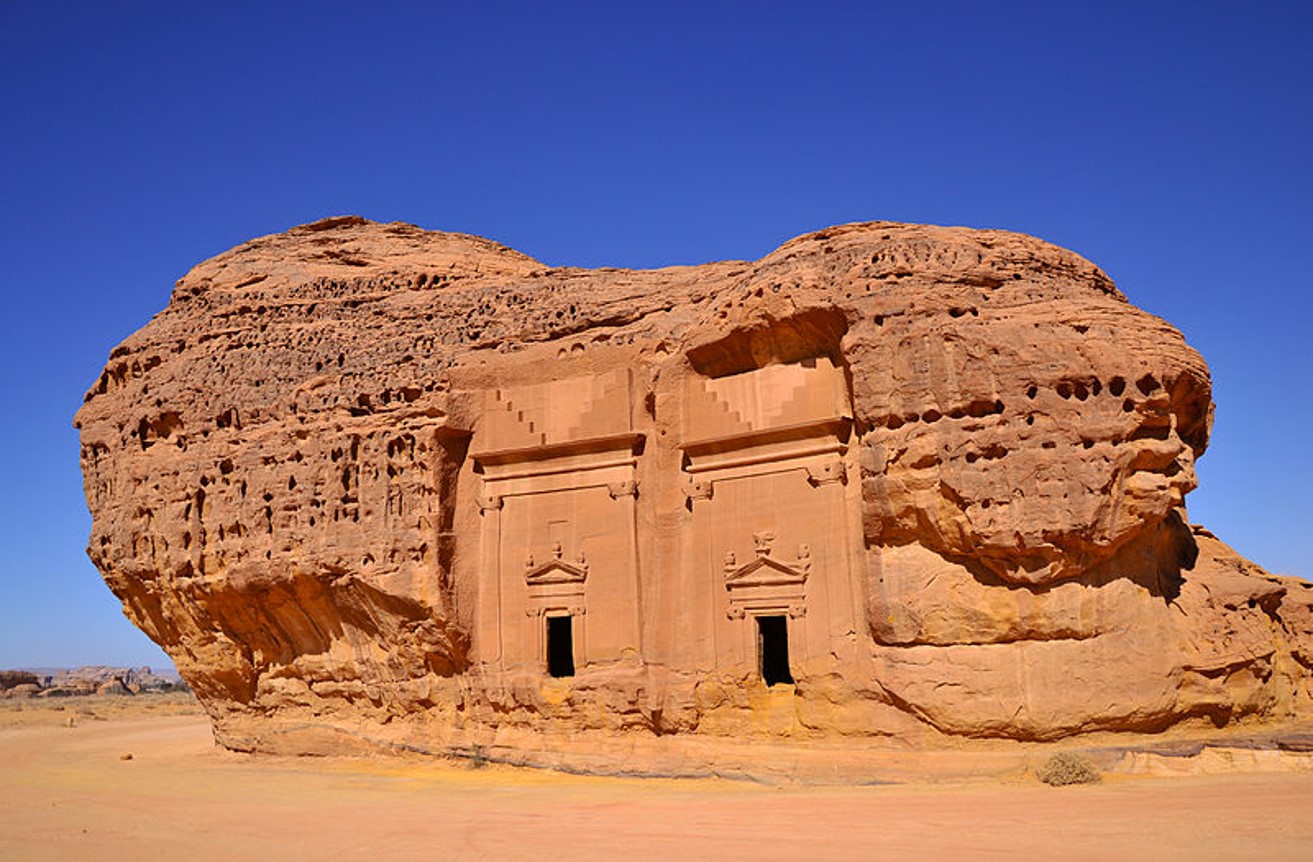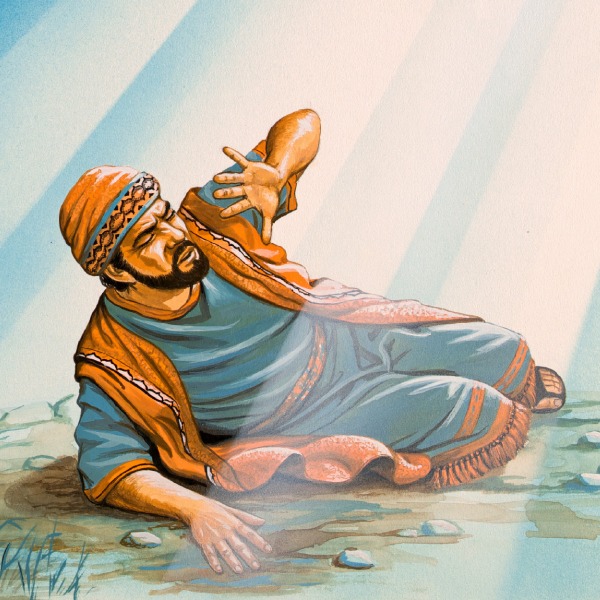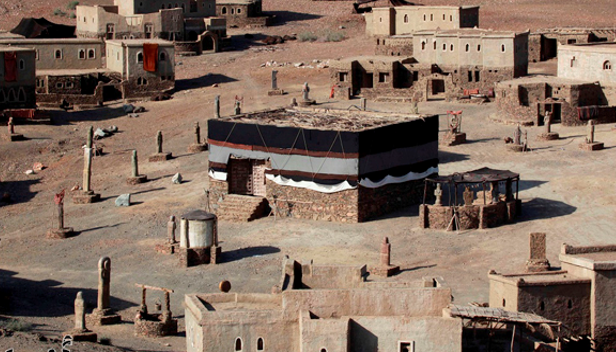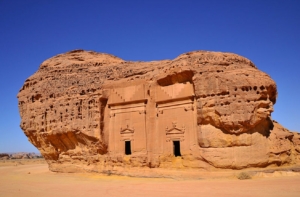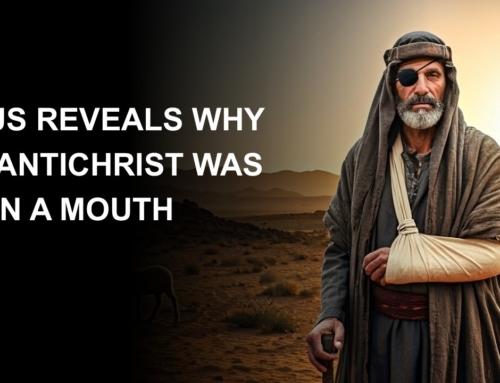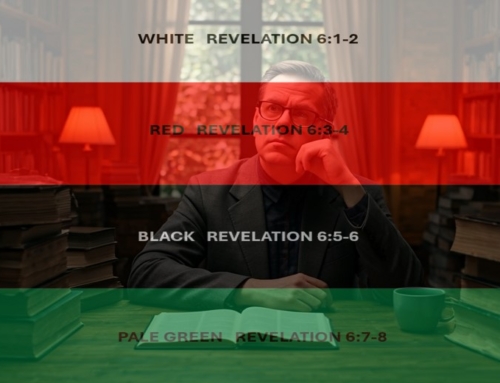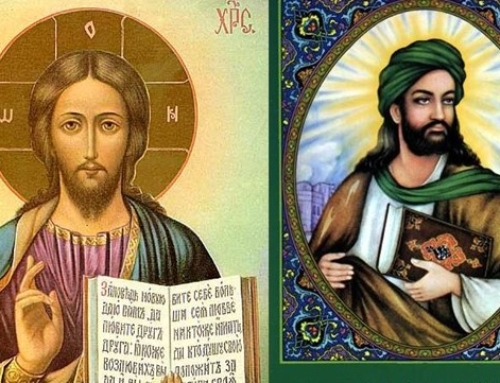Paul Went to Arabia to Give the Gospel to Gentiles
Arabia Rejected Gospel from Paul
The Truth Was Rejected and instead replaced with Islam
The Bible does not tell us much about Paul’s time in Arabia. He went to Arabia for two to three years shortly after his miraculous conversion when Jesus Christ appeared to him. Yet Pre-Islamic Arabia was not a Christian territory at the time of the False Prophet Mohammad some 600 years later. Pre-Islamic Arabia was mostly polytheist.

Galatians 1:15-17 (NIV)
“But when God, who set me apart from my mother’s womb and called me by his grace, was pleased to reveal his Son in me so that I might preach him among the Gentiles, my immediate response was not to consult any human being. I did not go up to Jerusalem to see those who were apostles before I was, but I went into Arabia. Later I returned to Damascus.”
PAUL MADE LITTLE OR NO PROGRESS IN ARABIA
Jerome suggests (written about the year 378) that “Paul visited a tribe in Arabia but that his mission was unsuccessful.” In the Bible there are no records of churches planted in Arabia, no Pauline Epistles to Arabia, nor did any fellow workers from Arabia accompany him on his western tours. Instead this later became the land of Islamic false teaching.
Despite spending substantial time in Arabia, it appears that Paul made little progress there spreading the Gospel truth about Jesus the Son of God. Most Arabs continued to worship multiple idols. Muslims refer to the state of religion in Pre-Islamic Arabia as the “times of ignorance.” The Arabs before Islam were mostly idol-worshippers or “polytheists.” Polytheism is the worship of or belief in multiple deities, which are usually assembled into a pantheon of gods and goddesses, along with their own religions and rituals. It was centered around the Kaaba in Mecca. The Blackstone in the Kaaba is the image we are warned about.

The people of Arabia worshipped numerous idols and each tribe had its own idol or idols and fetishes. They visited the Kaaba in Mecca as a heathen pantheon housing 360 idols of stone and wood—one for each day of the year.
The Mark and Image video is here.
The high prevalence of multiple idol worshippers explains Daniel’s (Daniel 11:37-39) prophecy about the Islamic Caliph Umar—“The king will do as he pleases.” After listening to Mohammad, in 616 Umar suddenly converted from the longstanding polytheism of his ancestors to the new religion of Islam and to Allah the fortress god.
Daniel 11:37-39 (NIV)
He will show no regard for the gods of his ancestors or for the one desired by women, nor will he regard any god, but will exalt himself above them all. Instead of them, he will honor a god of fortresses; a god unknown to his ancestors he will honor with gold and silver, with precious stones and costly gifts. He will attack the mightiest fortresses with the help of a foreign god and will greatly honor those who acknowledge him. He will make them rulers over many people and will distribute the land at a price.
The full video on Umar is here.
DOES THE KORAN HINT ABOUT PAUL’S TIME IN ARABIA?
The Koran contains many false and altered stories about Jesus. It may contain a false story about Paul as well! Was Paul renamed “Salih”?
Chart of Bible truths and Islamic false teachings is here.
There is a story in the Koran about a messenger that was rejected in Arabia before the time of Mohammad. Is this story connected to Paul in Arabia? The location is the same area. When Satan was revealed to Mohammad during 610-632, he gave many false stories about Jesus to Mohammad. While the false stories were primarily given to distort the Gospel truth, it is just as likely other false stories in the Koran could be about the Apostles seeking to spread the Gospel truth.
There is another reason to hold with Jerome and later writers that Paul went to a tribe in Arabia where his mission was unsuccessful. The “Salih” story in the Koran could be re-interpreted to be about Paul. The Koran speaks of a pre-Islamic prophet before Mohammad that was rejected by the Thamud people who did not believe. Scholars believe this person was generally between 100 BC and 100 AD. This fits the time of Paul. This was not “Isa” or Jesus of the Koran. It is someone else named “Salih.”
There was in the Nabatean region of Arabia, according to the Koran, to whom a missionary came with a new and strange message which was not favorably received, and yet whom and whose message those Arabs could not forget? The Arabs remembered it so well that Satan had to “spin” the story many years later in the Koran. The Mada’in Saleh is the place where the tribe of Thamud lived. That they rejected the teachings of the Prophet Salih is one of the well-known stories of Islam; however, they were also known for being able to make beautiful homes in the mountains.

Koran 11:61
And to Thamud we sent their brother Salih. He said, “O my people, worship Allah; you have no deity other than Him. He has produced you from the earth and settled you in it, so ask forgiveness of Him and then repent to Him. Indeed, my Lord is near and responsive.”
Koran 7:93
So he turned away from them, saying, “My people, I delivered my Lord’s messages to you and gave you sincere advice, so why should I grieve for people who refused to believe?”
Koran 11:62
“O Salih! You have been among us as a figure of good hope and we wished for you to be our chief, till this, new thing, which you have brought that we leave our gods, and worship your God alone! Do you now forbid us the worship of what our fathers have worshipped? But we are really in grave doubt as to that which you invite us to monotheism.”
Was Salih really Paul? Did Satan “spin” the story of Paul in Arabia to make it look like a pre-Islamic prophet was calling the people to Islam and Allah—but who was rejected?
PAUL SAYS “THEY REFUSED TO LOVE THE TRUTH”
Is Paul’s’ real message to us in Second Thessalonians about the coming man of lawlessness being revealed (in Arabia no less as the “Angel Gabriel” to Mohammad) as a punishment from God for refusing to love the truth? Is this Satan who was revealed to Mohammad “as an angel of light”? Note how Paul writes in the past tense: “they refused to love the truth and so be saved”, and “who have not believed the truth.”
2 Thessalonians 2:8-12 (NIV)
And then the lawless one will be revealed, whom the Lord Jesus will overthrow with the breath of his mouth and destroy by the splendor of his coming. The coming of the lawless one will be in accordance with how Satan works. He will use all sorts of displays of power through signs and wonders that serve the lie, and all the ways that wickedness deceives those who are perishing.
They perish because they refused to love the truth and so be saved. For this reason God sends them a powerful delusion so that they will believe the lie and so that all will be condemned who have not believed the truth but have delighted in wickedness.
To the Galatians, Paul warns about a false Gospel from an angel of light.
Galatians 1:8-9 (NIV)
But even if we or an angel from heaven should preach a gospel other than the one we preached to you, let them be under God’s curse! As we have already said, so now I say again: If anybody is preaching to you a gospel other than what you accepted, let them be under God’s curse!
Pray that some will learn of the truth of Jesus, the risen Son of God.
The False Prophet Video is here:
A summary of what has happened since World War II is listed here:
My testimony video is here:
Share the Good News of the Gospel
Keep praying for the Holy Spirit to allow Muslims to learn the truth of Jesus while they still have some time.
Share this video with your Muslim friends: |
